(We are offline due to a much-needed research period at the moment, so we've decided to re-publish some earlier pieces you might have missed the first time.)
Calling 911 on black people may soon be a crime in parts of Michigan, Oregon and New York (h/t Steve Sailer ). Why are Afro-Americans profiled so endlessly? We took a look at the data, and here's what we found.
[Re-post, original post here.]
In the outcry following the recent acquittal of Floridian George Zimmerman in the shooting death of an Afro teenager, many in the black community have voiced their displeasure. Canadian graduate student Matthew Simmermon-Gomes is one:
While we must take this nearly Euro-looking young man from Ottawa at his word, we are left a bit bemused that despite his 'education' and 'erudition,' he is flatly unaware of basic statistics and probability.
We all live our lives based on probabilities. This gentleman's Afro father, for example, got itchy feet and decided to abandon life in beautiful but tiny Antigua (then under British rule). Though he had the choice of over thirty Afro-run countries to emigrate to, he opted to take his chances in chilly white-run Canada. Why? Easy: Statistically speaking, Euro-governed countries provide a better quality of life in nearly every way--rule of law, lack of corruption, solid infrastructure, plentiful white-collar jobs, generous welfare state, a cornucopia of material comforts. Mr Gomes took a chance--and was right. Can we fault him that?
We can't speak for Canada, but chance is also the reason U.S. Whites lock their car doors, clutch their purses, and cross the street in the presence of Blacks. There is a folk knowledge culled from 400 years of disproportionate black crime in North America. It can be seen in the statistics, in the anecdotes, in the earliest colonial writings.
Statistical probability is the wellspring of stereotypes. It is what pushes us to avoid snakes, spiders, and scorpions; it is why Swiss clocks, German cars, and Jewish lawyers are so sought after; it is why the global South continually tries to emigrate to the global North. Past performance is no guarantee of future success, warn the experts, but from our experience, we know it usually is.
So in response to Mr. Matthew Simmermon-Gomes, 'Why are Afros profiled everywhere they go?' is a question that has concrete answers. Here they are.
I. The disproportionality of Afro-American crime
'Why are we profiled? Our crime is not higher than any other group.'
Though they are widely available on the internet, the U.S. government's records on Afro criminality are still like a magical taboo, to be danced around but not named.
The plain fact is that for as long as Afros and Euros have co-existed on North American soil, the criminality of the former has been markedly higher than the latter.
Records from colonial times are sparse. But from the Census's first incarceration data and throughout the post-Civil War era, in every region, the difference has been stark:





(See also Steve Sailer's compilation of this data for 1997, in graph form and map form.)
National numbers for the 20th century tell a similar story:

(Curiously, we see that as institutional racism fell away, Afro crime did not in fact diminish, but increase.)
After fifty years of Civil Rights enforcement and affirmative action, when black crime should be falling to the levels of white crime, this is what we find:
Diverse crimes, all races:
How much more likely Whites are to be victimized by Blacks than to victimize them:
II. The omnipresence of Afro crime
'Why are we profiled? Our crime may be higher, but that's because slavery and colonialism made us act this way.'
1) Black criminality should be decreasing, not increasing
The common argument that 'your oppression of us makes us act out in this way' is not tenable. As slavery and Jim Crow recede further into the past, Afro criminality is going up, not down. Put another way, according to the 'oppression-causes-crime' theory, this is how black and white criminality should look over the 20th century:

In reality, it looked like this:

One is hard-pressed, looking at the empirical data, to find evidence for this theory.
2) Afro migrants to other countries commit more crimes
It is also belied by the fact that to wherever Afros migrate in the word, including countries that never enslaved and/or colonized them, their crime rate is markedly higher than the host population.

France:
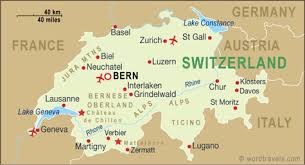
Switzerland:
Eight of the top ten crime-committing immigrant countries are Afro-populated:
As we can see, in this country whose colonizing and enslaving activities amounted to roughly zero, Afros are still mysteriously pushed to commit more crimes.
Australia:
* * *
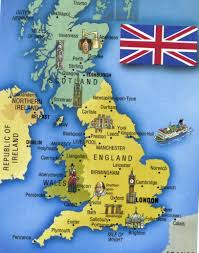
London, England:
The most immigrant-inundated country in Western Europe has begun to take stock of the results:

Canada:
Neither slaver nor colonizer, the Great White North has nonetheless struggled with an inscrutable Afro crime problem:
3) Afro-run countries are places of high crime
Unfortunately, our Afro brethren's organizational skills do not always allow them to produce reliable statistics on their societies. When looking for information about crime in Afro-run countries, then, it is wise to ask the question to those who cannot afford to lie: The U.S. State Department Bureau of Diplomatic Security. The price to pay for blithely sending an ambassador off to a violent death in the streets of a foreign capital is high; we can thus count on this agency to tell us the truth. What do they say?
First, the oldest independent Afro republic in the world: Haiti threw off the shackles of colonialism just a few years after the U.S. did, so by all rights it should be a model for the Afro world, a sort of 'blacktopia.' DOS 2012:

Haiti:

We may also observe large, relatively prosperous regional hubs such as, in the west, Nigeria:

In the east, we have Kenya:
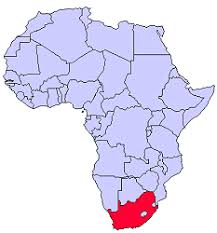
In the south, we have regional giant South Africa: Low-crime and orderly under apartheid, it has now thrown off white rule and basked in Afro governance for almost twenty years:
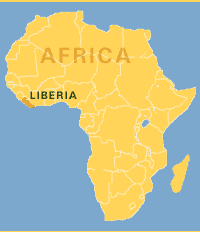
We also have Afro countries that have never known the yoke of Euro colonialism, such as Liberia:
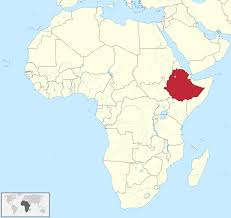
...or Ethiopia:
...we shall stop there.
Matthew Simmermon-Gomes's 'thousand micro-aggressions' and 'hundred fearful looks' may seem, in light of the above, if not pleasant to live through, at least not wholly unfounded. On Planet Earth, Afro crime is high. Period. It is high in their homeland, Africa. It is high in countries to which they migrate that were colonizers. It is high in countries to which they migrate that were not colonizers. It is high in countries to which they migrate that were slavers. It is high in countries to which they migrate that were not slavers. It is high nearly everywhere they are found on this third rock from the sun. Idang Alibi, a Nigerian journalist, states it plainly:
Afro crime is very high relative to other groups. This is why we profile.
Why Afro crime is so high is an entirely different question--one we will look at shortly. Stay tuned.
What I do know is what it’s like to be a Trayvon Martin. To be suspect. I do know what it’s like to be followed by staff in a nice clothing store; to be stopped by police for walking down the street; to endure the thousand micro-aggressions and the hundred fearful looks, the patronising astonishment coupled with quiet indignation at my education or erudition. I know, in other words, what it is to be a person of colour in a world that privileges whiteness.
While we must take this nearly Euro-looking young man from Ottawa at his word, we are left a bit bemused that despite his 'education' and 'erudition,' he is flatly unaware of basic statistics and probability.
We all live our lives based on probabilities. This gentleman's Afro father, for example, got itchy feet and decided to abandon life in beautiful but tiny Antigua (then under British rule). Though he had the choice of over thirty Afro-run countries to emigrate to, he opted to take his chances in chilly white-run Canada. Why? Easy: Statistically speaking, Euro-governed countries provide a better quality of life in nearly every way--rule of law, lack of corruption, solid infrastructure, plentiful white-collar jobs, generous welfare state, a cornucopia of material comforts. Mr Gomes took a chance--and was right. Can we fault him that?
Antigua or Canada....Decisions, decisions...
We can't speak for Canada, but chance is also the reason U.S. Whites lock their car doors, clutch their purses, and cross the street in the presence of Blacks. There is a folk knowledge culled from 400 years of disproportionate black crime in North America. It can be seen in the statistics, in the anecdotes, in the earliest colonial writings.
Statistical probability is the wellspring of stereotypes. It is what pushes us to avoid snakes, spiders, and scorpions; it is why Swiss clocks, German cars, and Jewish lawyers are so sought after; it is why the global South continually tries to emigrate to the global North. Past performance is no guarantee of future success, warn the experts, but from our experience, we know it usually is.
So in response to Mr. Matthew Simmermon-Gomes, 'Why are Afros profiled everywhere they go?' is a question that has concrete answers. Here they are.
I. The disproportionality of Afro-American crime
'Why are we profiled? Our crime is not higher than any other group.'
Though they are widely available on the internet, the U.S. government's records on Afro criminality are still like a magical taboo, to be danced around but not named.
The plain fact is that for as long as Afros and Euros have co-existed on North American soil, the criminality of the former has been markedly higher than the latter.
Records from colonial times are sparse. But from the Census's first incarceration data and throughout the post-Civil War era, in every region, the difference has been stark:
* * *
* * *
* * *
* * *
(See also Steve Sailer's compilation of this data for 1997, in graph form and map form.)
National numbers for the 20th century tell a similar story:
After fifty years of Civil Rights enforcement and affirmative action, when black crime should be falling to the levels of white crime, this is what we find:
Diverse crimes, all races:
How much more likely Whites are to be victimized by Blacks than to victimize them:
What the relation is between your city's crime rate and its Afro + Hispanic population:
(Source: 'Color of Crime')
Having seen its ubiquity in the United States, let us consider high Afro criminality elsewhere.
II. The omnipresence of Afro crime
'Why are we profiled? Our crime may be higher, but that's because slavery and colonialism made us act this way.'
1) Black criminality should be decreasing, not increasing
The common argument that 'your oppression of us makes us act out in this way' is not tenable. As slavery and Jim Crow recede further into the past, Afro criminality is going up, not down. Put another way, according to the 'oppression-causes-crime' theory, this is how black and white criminality should look over the 20th century:
In reality, it looked like this:
One is hard-pressed, looking at the empirical data, to find evidence for this theory.
2) Afro migrants to other countries commit more crimes
It is also belied by the fact that to wherever Afros migrate in the word, including countries that never enslaved and/or colonized them, their crime rate is markedly higher than the host population.
France:
Hugues Lagrange found that in the same socioeconomic class, "teens brought up in families from Sub-Saharan Africa commit crimes at three to four times the rate of native French teens."
A 1999 study, the most thorough, showed that 40% of [French] prisoners had a foreign father...There are 2.7 times as many Sub-Saharan Africans in prison as their proportion of the general population.
(Native French/Europeans = 85% of the population; Black African = 3.5%)
* * *
Switzerland:
In 2010 for the first time was a statistic published which listed delinquency by nationality (based on 2009 data). To avoid distortions due to demographic structure, only the male population aged between 18 and 34 was considered for each group.
Eight of the top ten crime-committing immigrant countries are Afro-populated:
As we can see, in this country whose colonizing and enslaving activities amounted to roughly zero, Afros are still mysteriously pushed to commit more crimes.
* * *
Australia:
Sudanese and Somali-born Victorians are about five times more likely to commit crimes than the wider community, a trend that must be addressed to prevent [...] social unrest, police warn.
The most common crimes committed by Somali and Sudanese-born Victorians are assault and robbery, illustrating the trend towards increasingly violent robberies by disaffected African youths.
* * *
London, England:
The most immigrant-inundated country in Western Europe has begun to take stock of the results:
While a great many of these criminals are Jamaican, and may thus argue 'slavery made us do it,' it is to be noted that a large number are also Nigerian, and thus more likely descended from those who sold others into slavery.
* * *
Canada:
Neither slaver nor colonizer, the Great White North has nonetheless struggled with an inscrutable Afro crime problem:
3) Afro-run countries are places of high crime
Unfortunately, our Afro brethren's organizational skills do not always allow them to produce reliable statistics on their societies. When looking for information about crime in Afro-run countries, then, it is wise to ask the question to those who cannot afford to lie: The U.S. State Department Bureau of Diplomatic Security. The price to pay for blithely sending an ambassador off to a violent death in the streets of a foreign capital is high; we can thus count on this agency to tell us the truth. What do they say?
First, the oldest independent Afro republic in the world: Haiti threw off the shackles of colonialism just a few years after the U.S. did, so by all rights it should be a model for the Afro world, a sort of 'blacktopia.' DOS 2012:
Haiti:
The United States government (USG) rates Haiti as CRITICAL in the threat categories of crime and political violence. ... The most frequently reported crimes against Americans in Port-au-Prince are carjackings, kidnappings, and robberies. .... Anyone visiting or residing in Port-au-Prince for more than a few days is likely to hear gunfire at some point during their stay. ...
The Regional Security Office at the U.S. Embassy recommends against walking or jogging on any street in Port-au-Prince... Embassy policy prohibits the use of any public transportation in Haiti for U.S. government employees. [...]
We may also observe large, relatively prosperous regional hubs such as, in the west, Nigeria:
The U.S. Department of State considers the threat from criminal elements to be “Critical.” Crime is a risk throughout the country. U.S. visitors and residents experienced armed muggings, assaults, burglaries, carjackings, rapes, kidnappings, and extortion.
U.S. citizens, as well as Nigerians and other expatriates, have been victims of armed robbery at banks and grocery stores and on airport roads during both daylight and evening hours. Law enforcement authorities usually respond slowly or not at all...Vehicular accidents remain common and frequently draw large, confrontational crowds....Public transportation is unsafe and discouraged.
* * *
In the east, we have Kenya:
Kenya remains critically rated for both Crime and Transnational Terrorism. ... The most common crime in Kenya’s major cities, and in particular Nairobi, is car-jacking. In virtually every instance, criminals use weapons to hijack a vehicle. Victims are sometimes tied up and put in the back seat or trunk of their own car. Criminals who commit these crimes will not hesitate to shoot a victim who is the least bit uncooperative ...
Violent and sometimes fatal criminal attacks, including armed carjackings, home invasions/burglaries, and kidnappings can occur at any time and in any location,...Street crime is a serious problem ... Walking alone is not advisable especially downtown, public parks, beach areas, and other poorly lit areas...
* * *
In the south, we have regional giant South Africa: Low-crime and orderly under apartheid, it has now thrown off white rule and basked in Afro governance for almost twenty years:
The Department of State's Bureau of Diplomatic Security rates Pretoria, Johannesburg, Durban, and Cape Town as “Critical” crime threat posts. ... Violent, confrontational crime is a major concern. Such crimes include home invasion robberies, burglaries, carjackings, street muggings, smash-and-grabs...
Regardless of the type of crime being committed, what distinguishes the crime in South African is 1) the level of violence associated with these crimes, as criminals are not hesitant to use lethal weapons, and 2) that crimes permeate the entire country, regardless of the socio-economic status of a particular neighborhood.
* * *
We also have Afro countries that have never known the yoke of Euro colonialism, such as Liberia:
Monrovia is rated a high threat post for crime... The vast majority of crime that occurs in Monrovia is “crimes of opportunity” like pick pocketing, snatch-and-grabs, and scams. Travelers are cautioned when visiting the areas of greater Monrovia known as Red Light, Waterside, Congo Town, ELWA Junction, and all market areas. These areas are extremely crowded with a lot of petty crime ...
Corruption hinders the development of the police, as bribes and extortion are frequent. Many criminal incidents are unsuccessfully investigated, removing any hope of an arrest or recovery of property.
* * *
...or Ethiopia:
Pick-pocketing, “snatch and run” thefts on foot and from occupied vehicles, and other petty crimes are common in Addis Ababa. ... Public transport is unregulated and unsafe; if travelers do use public transport, they should use taxis, not minibuses or large buses, and ensure they are the only passengers in the vehicle.
...There have been reports of highway robbery, including carjacking, by armed bandits outside urban areas. Some incidents have been accompanied by violence. Travelers are cautioned to limit road travel outside major towns or cities to daylight hours and travel in convoys, if possible.
...we shall stop there.
* * *
Matthew Simmermon-Gomes's 'thousand micro-aggressions' and 'hundred fearful looks' may seem, in light of the above, if not pleasant to live through, at least not wholly unfounded. On Planet Earth, Afro crime is high. Period. It is high in their homeland, Africa. It is high in countries to which they migrate that were colonizers. It is high in countries to which they migrate that were not colonizers. It is high in countries to which they migrate that were slavers. It is high in countries to which they migrate that were not slavers. It is high nearly everywhere they are found on this third rock from the sun. Idang Alibi, a Nigerian journalist, states it plainly:
Anywhere in the world today where you have a concentration of black people among other races, the poorest, the least educated, the least achieving, and the most violent group among those races will be the blacks. When indices of underdevelopment are given, black people and countries are sure to occupy the bottom of the ladder.
God himself must be frustrated with his black children. They must be an embarrassment to him. He has given us everything he has given to other of his children; why are his black children not manifesting their own gift?
Afro crime is very high relative to other groups. This is why we profile.
Why Afro crime is so high is an entirely different question--one we will look at shortly. Stay tuned.
Previously:




















14 comments:
Excellent article. Thank you for your work. I look forward to future articles.
Since 'profiling' and 'discrimination' are essentially the same thing, my essay on the latter "Discrimination" - A WV Hilltop View (https://wvhilltop.blogspot.com/2015/04/discrimination.html) might be of interest to TWCS readers. It examines the question of not JUST why we profile/discriminate, but why we must.
"Since 'profiling' and 'discrimination' are essentially the same thing,"
No. Profiling is the process of observing physical and behavioral characteristics, rationally analyzing them and coming to informed conclusions. Rhetorically, discrimination simply means choosing one option over another because of some characteristic. It becomes an issue when one group comes out on the losing side of that equation, usually because of an underlying bias. Profiling becomes discrimination when those biases are allowed flourish and fester.
"It examines the question of not JUST why we profile/discriminate, but why we must."
Essentially, it is an argument that was used before generally by Southerners, but now repackaged.
So you think this is all about race and not about economics and education? That seems like a stretch. A conclusion in search of data to support it.
no matter where they go...................................there they are.
excellent article.. many thx. shared.
To Anonymous at 22/9/19 12:05 AM
Economics and education do not explain disproportionate black criminality. Like the criminality, they are the results of average black mental functioning, specifically IQ well below that of whites, poor impulse control, lack of future time orientation and not being conscientious.
Anony 12/10/19 6:01 p.m.
No. Environmental factors like the ones you listed play a significant role.
Of course, if we use your "argument", then white collar criminals committed by whites, as well as white trash crimes like wife beatings and the selling of meth, would also fall in the category of poor impulse control, lack of future time orientation, and not being conscientious.
It's really about the individual human condition.
Regarding South Africa: I don't think that apartheid government recorded the crimes occurred in black townships. The only people that mattered for the police were whites which they lived in better conditions, hence the better statistics for crime during apartheid. In Liberia and Ethiopia US state department identified as risk factors scams and pick-pocketing crimes that are driven by economic status. So these 2 countries should not be in same category as South Africa. You must take in consideration that the african states don't have a good police force, they don't have a rule of law, comparing with mature western nations is pointless.In XIX in lawless US wild west and the crime rate was maybe similar with the one from Africa. If we would make a statistic then we could conclude that the whites are more prone to violent crimes as other races.
Haiti was boycotted from day one of the independence, and last century it was dictatorship under Papa Doc Duvalier, also it cannot be compared with US
When facing a criminal the color of the skin matters less, Russel Williams was a white colonel from Canadian air force who killed 4 women, nobody suspected him. If we scan only for foreign criminals we might ignore the ones who seem familiar.
At Anon 15/10/19 If your environment premise was correct, the crime rate of poor whites would be similar to those of poor blacks?
They are not. http://i2.wp.com/thealternativehypothesis.org/wp-content/uploads/2017/01/Rich-vs-Poor.png?resize=678%2C512
And as for poor impulse control, lack of future time orientation, and not being conscientious, there's ample data showing that these are heritable, and thus aggregates of heritable behaviors are predicted among groups, especially groups whose ancestors lived under very different conditions for thousands of years. Yes, they vary by race (or for the anti-racist crowd, ancestral groups.)
Racial differences in intelligence, time preference and conscientiousness also show up in performance on the SAT when comparing the children of parents of various levels of education. It turns out that (until the College Board decided to hide such troublesome data), the children of blacks having graduate degrees perform below white students whose parents just finished high school. http://lagriffedulion.f2s.com/testing.htm
No matter how much people want to believe we're all the exact same under the skin, the truth is far more complicated and genetic science is revealing why. Instead of insisting we're all identical cogs in a box, why not accept that we really are different and allow people to adjust accordingly. If I were significantly less talented than everyone else with whom I worked/competed/studied/etc., I'd rather find a more similar group than be Tail End Charlie all the time or be the charity case who everyone else pitied and fed blather about how "next week I'd be just like them."
"And as for poor impulse control, lack of future time orientation, and not being conscientious, there's ample data showing that these are heritable, and thus aggregates of heritable behaviors are predicted among groups, especially groups whose ancestors lived under very different conditions for thousands of years. Yes, they vary by race (or for the anti-racist crowd, ancestral groups.)"
Context is needed here. As described, impulsivity is a heritable, disease-associated trait, useful as an endophenotype for gene discovery. Impulsivity is, however, not a unitary construct and, as discussed, multiple laboratory behavioural tasks and self-reported measures are used to assess different aspects of impulsivity. On the other hand, it is also true that there is no one gene that will be identified as an ‘impulsivity gene’, since the action of most genes is pleiotropic.
Although prior studies have examined growth in disinhibited personality characteristics across development (e.g. Roberts et al., 2006), most studies have not examined specific facets of disinhibition. We found differences in the development of sensation seeking and impulsivity from childhood into adolescence: on average sensation seeking increased and impulsivity (mother-report) decreased. Our longitudinal findings are thus in line with previous cross-sectional research showing that impulsivity declines with age and sensation seeking increases in adolescence (Steinberg et al., 2008) as well as research showing increases in sensation seeking during middle school (Crawford et al., 2003).
"No matter how much people want to believe we're all the exact same under the skin, the truth is far more complicated and genetic science is revealing why."
And that genetic science is also taking into distinct account environmental factors.
I wanted to thank you ffor this very good read!!
I definitely enjoyed every bit of it.
I have got you book-marked to look at new thinggs you post.
Great bloog here! Also your website loads up very fast!
Post a Comment